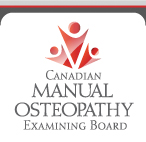Cigna Customers Prescribed CRESTOR May Lower Their Bad Cholesterol with Reduced Out-of-Pocket Costs
- Innovative Use of Predictive Risk Modeling Identifies Customers Most Likely to Benefit from Aggressive LDL-C Lowering from Statin Treatment
- Targeted Approach to Helping High-Risk Patients with High Cholesterol Enhances Value-Based Care
BLOOMFIELD, Conn.--(BUSINESS WIRE)--
Cigna (CI) has entered into a first-of-its-kind contract with AstraZeneca (AZN) to help ensure that customers are given an appropriate cholesterol-lowering medication based on their treatment needs. For Cigna customers who are at increased risk for atherosclerotic cardiovascular disease (ASCVD) and need to aggressively manage their low-density lipoprotein cholesterol (LDL-C), CRESTOR®(rosuvastatin calcium), a brand-name, cholesterol-lowering drug manufactured by AstraZeneca, can be prescribed and filled without requiring prior authorization.
As an integrated health services company, Cigna is able to use both medical and pharmacy information in predictive risk modeling to appropriately assess a customer’s overall health condition. This approach analyzes multiple clinical factors to identify customers most at risk for ASCVD related to high cholesterol. When a doctor prescribes CRESTOR, customers identified as being at higher risk will no longer be subject to “step therapy”–where a generic alternative is tried first–and can have their prescriptions for CRESTOR filled immediately.
“Our arrangement with Cigna is an evolutionary step in supporting patient health, and facilitating access to CRESTOR for high risk patients. Predictive risk modeling can be used to help support the right treatment for the right patient at the right time, and we are excited to be working with Cigna because they are the only insurance carrier or Pharmacy Benefit Manager we have seen who has offered this capability,” says Philip de Vane, MD, Executive Director of US Medical Affairs, AstraZeneca.
“Cigna's mission is to help the people we serve improve their health, well-being, and sense of security, and using predictive risk modeling for our customers aligns incentives to drive affordability and improved outcomes. It is a more effective way to manage prescription drug costs for employers and customers by making it easier for higher-risk patients to obtain important medicines like CRESTOR more quickly while still using generics where they are a viable alternative,” says Chris Hocevar, President of Cigna Pharmacy Management and Select Business. “It is exciting to break new ground with AstraZeneca because they share our commitment to patients.”
CRESTOR is now available to Cigna customers as the preferred brand-name statin, saving customers out-of-pocket costs. This preferred status applies to both those who are determined to be at higher risk and those at lower risk who are not getting enough cholesterol lowering from treatment with a generic statin.
About CRESTOR® (rosuvastatin calcium) Tablets
CRESTOR is indicated as an adjunct to diet to reduce elevated Total-C, LDL-C, ApoB, non-HDL-C, and triglycerides, and to increase HDL-C in adult patients with primary hyperlipidemia or mixed dyslipidemia and to slow the progression of atherosclerosis in adult patients as part of a treatment strategy to lower Total-C and LDL-C to target levels. CRESTOR is also indicated to reduce the risk of myocardial infarction, stroke, and arterial revascularization procedures in patients without clinically evident coronary heart disease but with an increased risk of cardiovascular disease (CVD) based on age (men ≥50 and women ≥60), high-sensitivity C-reactive protein (hsCRP) ≥2 mg/L, and the presence of at least one additional CVD risk factor, such as hypertension, low HDL-C, smoking, or a family history of premature coronary heart disease.
Important Safety Information for CRESTOR® (rosuvastatin calcium) Tablets
CRESTOR is contraindicated in patients with a known hypersensitivity to any component of this product, in patients with active liver disease, which may include unexplained persistent elevations of hepatic transaminase levels, in women who are pregnant or may become pregnant, and in nursing mothers.
Cases of myopathy and rhabdomyolysis with acute renal failure secondary to myoglobinuria have been reported with statins, including CRESTOR. These risks can occur at any dose level, but are increased at the highest dose (40 mg).
CRESTOR should be prescribed with caution in patients with predisposing factors for myopathy (eg, age ≥65 years, inadequately treated hypothyroidism, renal impairment). The risk of myopathy during treatment with CRESTOR may be increased with concurrent administration of some other lipid-lowering therapies (fibrates or niacin), gemfibrozil, cyclosporine, lopinavir/ritonavir, or atazanavir/ritonavir.
Therapy with CRESTOR should be discontinued if markedly elevated CK levels occur or myopathy is diagnosed or suspected. There have been rare reports of immune-mediated necrotizing myopathy associated with statin use. All patients should be advised to promptly report unexplained muscle pain, tenderness, or weakness, particularly if accompanied by malaise or fever, and if muscle signs and symptoms persist after discontinuing CRESTOR.
It is recommended that liver enzyme tests be performed before the initiation of CRESTOR and if signs or symptoms of liver injury occur. All patients treated with CRESTOR should be advised to promptly report any symptoms that may indicate liver injury, including fatigue, anorexia, right upper abdominal discomfort, dark urine, or jaundice. There have been rare postmarketing reports of fatal and non-fatal hepatic failure in patients taking statins, including CRESTOR. If serious liver injury with clinical symptoms and/or hyperbilirubinemia or jaundice occurs during treatment with CRESTOR, promptly interrupt therapy. If an alternate etiology is not found, do not restart CRESTOR.
CRESTOR should be used with caution in patients who consume substantial quantities of alcohol and/or have a history of chronic liver disease.
Increases in HbA1c and fasting serum glucose levels have been reported with statins, including CRESTOR. Based on clinical trial data with CRESTOR, in some instances these increases may exceed the threshold for the diagnosis of diabetes mellitus.
In the controlled clinical trials database, the most common adverse reactions were headache (3.7%), myalgia (3.1%), abdominal pain (2.6%), asthenia (2.5%), and nausea (2.2%). Rare postmarketing reports of cognitive impairment (eg, memory loss, forgetfulness, amnesia, memory impairment, confusion) have been associated with statin use, including CRESTOR. These reports are generally nonserious and reversible upon statin discontinuation.
CRESTOR 40 mg should be used only for those patients not achieving their LDL-C goal with 20 mg.
Please read the full Prescribing Information.
If you have any questions concerning prescription-only CRESTOR, please visit CRESTOR.com or contact AstraZeneca at 1-800-CRESTOR.
CRESTOR is a registered trademark of the AstraZeneca group of companies.
About AstraZeneca
AstraZeneca is a global, innovation-driven biopharmaceutical business with a primary focus on the discovery, development and commercialization of prescription medicines for gastrointestinal, cardiovascular, neuroscience, respiratory and inflammation, oncology and infectious disease. AstraZeneca operates in over 100 countries and its innovative medicines are used by millions of patients worldwide. For more information about AstraZeneca in the US or our AZ&Me™ Prescription Savings programs, please visit: www.astrazeneca-us.com or call 1-800-AZandMe (292-6363).
About Cigna
Cigna Corporation (CI) is a global health service company dedicated to helping people improve their health, well-being and sense of security. All products and services are provided exclusively by or through operating subsidiaries of Cigna Corporation, including Connecticut General Life Insurance Company, Cigna Health and Life Insurance Company, Life Insurance Company of North America and Cigna Life Insurance Company of New York. Such products and services include an integrated suite of health services, such as medical, dental, behavioral health, pharmacy, vision, supplemental benefits, and other related products including group life, accident and disability insurance. Cigna maintains sales capability in 30 countries and jurisdictions, and has approximately 80 million customer relationships throughout the world. To learn more about Cigna®, including links to follow us on Facebook or Twitter, visit www.cigna.com.










 Master PCMH Criteria with Upcoming Webinars
Master PCMH Criteria with Upcoming Webinars







 The American Osteopathic Association (AOA) is the representative organization for the over 70,000 osteopathic physicians (DOs) and 18,000 osteopathic medical students in the United States. The organization promotes public health, encourages scientific research, serves as the primary certifying body...
The American Osteopathic Association (AOA) is the representative organization for the over 70,000 osteopathic physicians (DOs) and 18,000 osteopathic medical students in the United States. The organization promotes public health, encourages scientific research, serves as the primary certifying body...










 9:24
9:24
 Daniel Enriquez de Guevara
Daniel Enriquez de Guevara













.jpg)


















0 comentarios:
Publicar un comentario